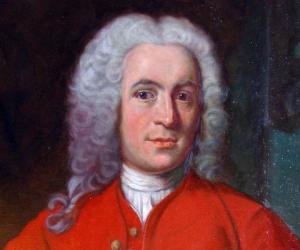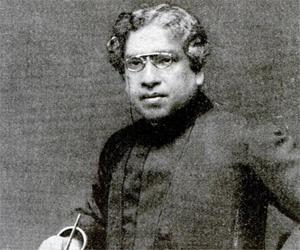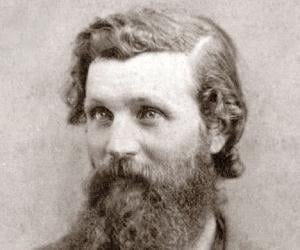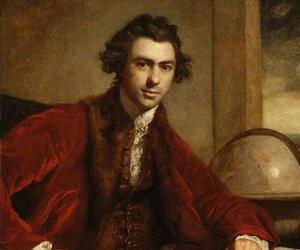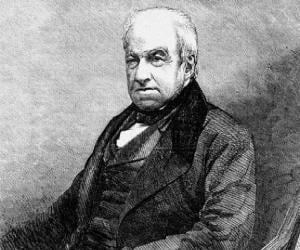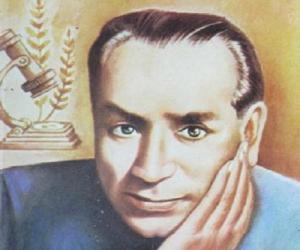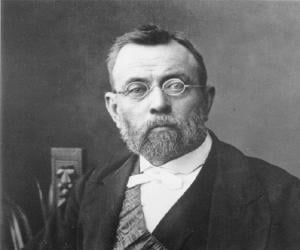Swedish botanist and lecturer Carl Linnaeus, who established the concept of binomial nomenclature, or the system of naming organisms, is also known as the father of modern taxonomy. His system of classification is known as Linnaean taxonomy. He was the first to include humans and apes under the header Anthropomorpha.
Indian physicist, biologist, and plant physiologist Jagadish Chandra Bose revolutionized science with his research on how plants and animals react to external stimuli. He founded the Bose Institute, made pioneering contribution to the field of radio and microwave optics, and also penned one of the first works of Bengali science fiction.
John Muir was a Scottish-American naturalist, environmental philosopher, glaciologist, botanist, zoologist, and author. Nicknamed Father of the National Parks and John of the Mountains, Muir was an influential proponent of the preservation of wilderness in the US. He is credited with co-founding the American conservation organization, The Sierra Club. Muir is considered a hero by many environmentalists around the world.
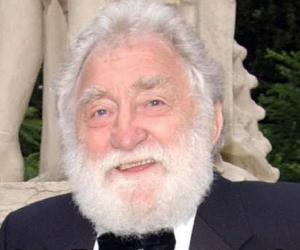
Once regarded as one of the world’s leading experts on botany and the environment, David Bellamy was also a successful TV presenter and was a regular on BBC programs. However, he later claimed that he was shunned by the TV fraternity for his denial of the importance of climate change.
British naturalist Joseph Banks is remembered for accompanying Captain James Cook on his voyage across places such as Brazil and Tahiti. He had also been the president of the Royal Society for over 40 years. Both his herbarium and library now find a place at the British Museum.
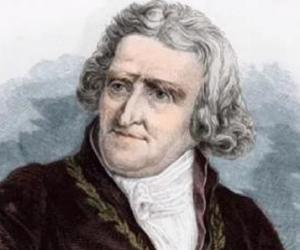
While in prison, in the aftermath of the Seven Years’ War, army pharmacist Antoine-Augustin Parmentier was forced to eat potatoes, which were considered fit only for prison ration and animal feed back then. Parmentier later persuaded the Paris Faculty of Medicine to declare potatoes edible and popularized them in France.
Copley Medal-winning Scottish botanist Robert Brown is remembered for his detailed descriptions on topics such as the cell nuclei and what later came to be known as the Brownian motion. After studying medicine, he had also served the British Army as a surgeon and also toured the Australian shores aboard The Investigator.
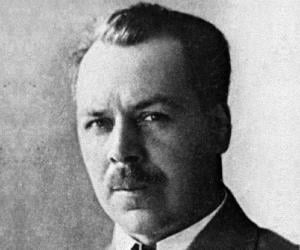
Russian geneticist Nikolai Vavilov not just taught at the University of Saratov but also served as the director of the Bureau of Applied Botany in Petrograd. He made expeditions worldwide, but invited criticism from Soviet agronomist T.D. Lysenko, who was close to Stalin. Vavilov was eventually imprisoned and died in captivity.
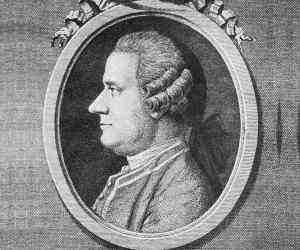
The man who discovered photosynthesis, Jan Ingenhousz was born in the Netherlands but later settled in England. He is also remembered for his pioneering research on thermal conduction and the prevention of smallpox and even successfully inoculated the Habsburg family against smallpox. He was also Maria Theresa’s personal doctor.
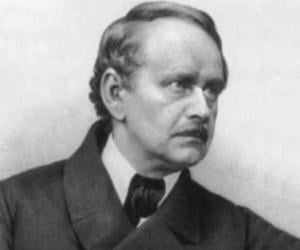
Matthias Jakob Schleiden was a German botanist who is credited with co-founding cell theory along with Rudolf Virchow and Theodor Schwann. He is also remembered for his service as a professor at the University of Dorpat from the mid 1860s.
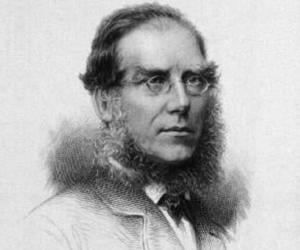
British botanist Joseph Dalton Hooker is remembered as one of Charles Darwin’s greatest supporters. The man who is known as the pioneer of geographical botany, Hooker followed in the footsteps of his botanist father. The Copley Medal winner is also known for his iconic work Genera Plantarum.

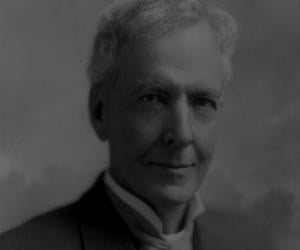
Luther Burbank was an American horticulturist and botanist. A pioneer in agricultural science, Luther Burbank developed over 800 varieties of plants and strains in an illustrious career that spanned 55 years. He is also credited with developing a spineless cactus that served as cattle feed. In 1986, Luther Burbank was made an inductee of the National Inventors Hall of Fame.
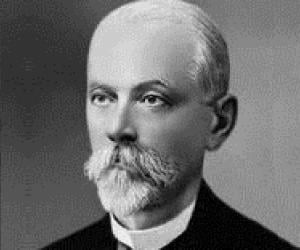
Best remembered for his co-discovery of viruses during his research on the mosaic disease in tobacco, Russian botanist Dmitri Ivanovsky is regarded as one of the pioneers of virology. Interestingly, following his discovery, he didn’t focus on virology much and taught plant anatomy and physiology instead.
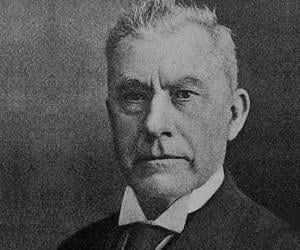
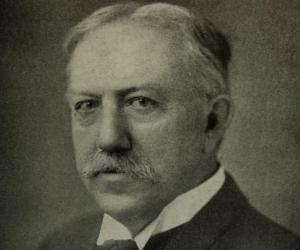
Remembered as the first president of the Leland Stanford Junior University, now known as Stanford University, David Starr Jordan was a reputed ichthyologist. An anti-war activist, too, who opposed America’s participation in World War I, he spent his later years as the chief director of the World Peace Foundation.
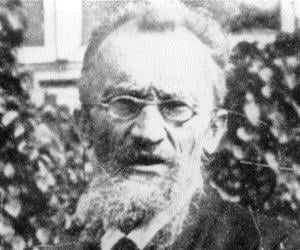
Wladimir Köppen was a Russian-German meteorologist, geographer, botanist, and climatologist. He is best remembered for publishing the Köppen climate classification system, which is used even today. Wladimir Köppen made important contributions to many branches of science. He is also credited with coining the term aerology.
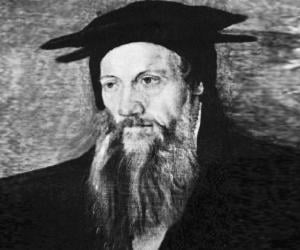
Born to a poor fur dealer, Conrad Gessner was sent to study under an uncle who dealt in medicinal herbs. He then studied theology but later grew up to become a Renaissance polymath, excelling in subjects such as natural history and medicine. His Bibliotheca universalis remains a major work in bibliography.
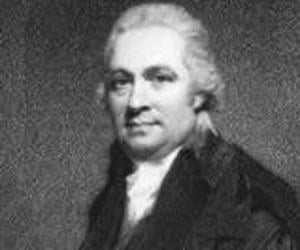
Best known for discovering nitrogen gas, Scottish chemist Daniel Rutherford was also initially a practicing physician. A skilled botanist, he also taught botany at the University of Edinburgh. His other inventions include the maximum and minimum thermometers. He also co-founded the Royal Society of Edinburgh.
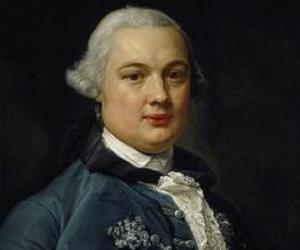
Scottish explorer James Bruce is best known for his treatises of travel and his discovery of the source of the Blue Nile. Initially a wine merchant, he later became a British consul in Algiers and decided to explore North Africa. He traveled to places such as Syria, Ethiopia, and Egypt.
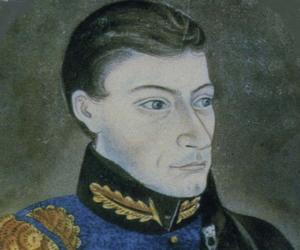
German physician and botanist Philipp Franz von Siebold was considered a pioneer of Western medicine in Japan. His works include the iconic book Flora Japonica. He fathered a daughter with a Japanese courtesan, who grew up to be Kusumoto Ine, Japan’s first female doctor with knowledge in Western medicine.
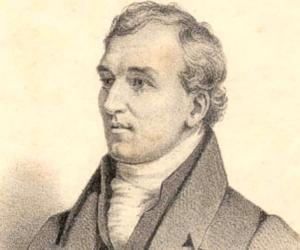
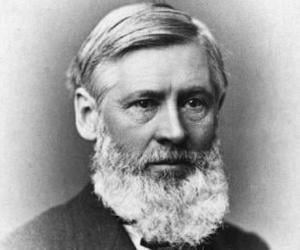
Asa Gray was an American botanist best remembered for authoring a book on botany, which came to be known as Gray's Manual. He also served as a professor at Harvard University and often met leading natural scientists of his time, including Charles Darwin. Asa Gray is widely regarded as the most prominent botanist of the 19th century.
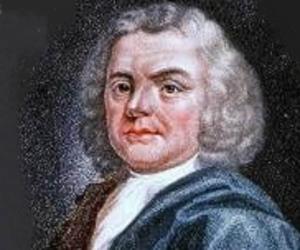
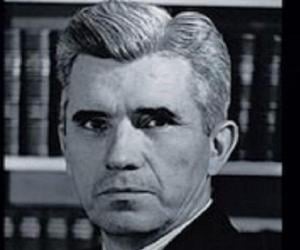
Joseph Banks Rhine was an American botanist best remembered for his research and study of parapsychology. He is credited with founding Duke University's parapsychology lab, the Parapsychological Association (PA), the Rhine Research Center, and the Journal of Parapsychology.
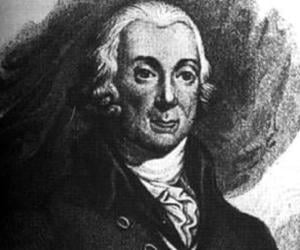
German naturalist Peter Simon Pallas was born to a professor of surgery and had, by age 15, formulated classifications of several animal groups. He chiefly worked in and around Russia, and is remembered for his 3-volume geological study, Journey Through Various Provinces of the Russian Empire.
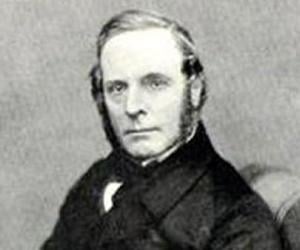
Scottish botanist and traveler Robert Fortune was involved in a lot of exploratory projects, which took him to China and Taiwan. He is credited with the development of the tea business in India, as part of the East India Company’s campaign. He also brought in many trees, shrubs, and flowers to Europe.
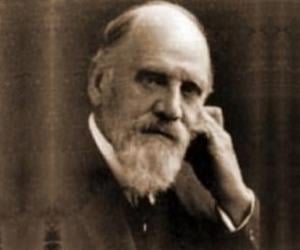
Apart from being the third son of legendary naturalist Charles Darwin, Francis Darwin was a botanist in his own right, too. While he initially studied math, he later switched to natural sciences and then also studied medicine. He is best remembered for his contribution to phototropism.
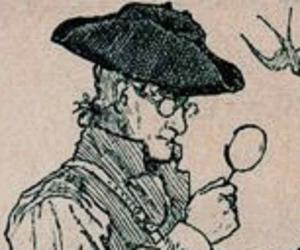
John Bartram was an Anglo-American colonial botanist, explorer, and horticulturist. Regarded by some as one of the world's greatest natural botanists, Bartram is credited with starting one of America's first botanic gardens in 1728. The botanic garden, which is now referred to as Bartram's Garden, is a National Historic Landmark.
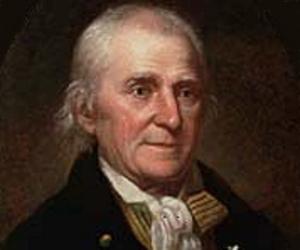
William Bartram was an American ornithologist, botanist, explorer, and natural historian. He is best remembered for authoring an acclaimed book, which is now known as Bartram's Travels. The book chronicles Bartram's explorations of the British colonies in North America. William Bartram was also one of America's first ornithologists.
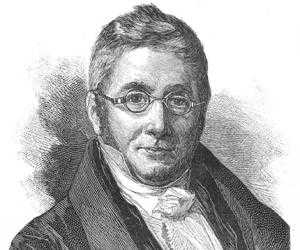
Swiss botanist Augustin Pyrame de Candolle excelled in literature and poetry in school but later focused on botany. He is remembered for establishing scientific standards and classification for plant genera. Known for his Théorie élémentaire de la botanique, he later lent his name to several plant species and genera.
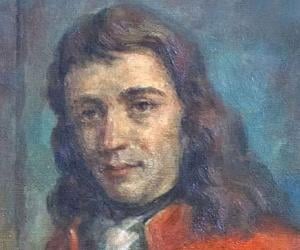
German-born zoologist and botanist Georg Wilhelm Steller traveled to Russia on a troop ship. He was later part of the Great Northern Expedition, aboard the St. Peter, aimed at locating a sea route from Russia to North America. The Steller’s sea cow, discovered by him, went extinct later.
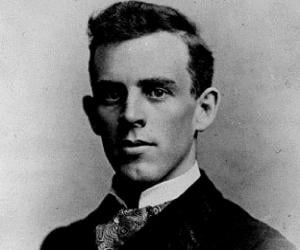
David Fairchild was an American plant explorer and botanist. He is credited with introducing over 200,000 exotic plants to the United States. He also introduced varieties of established crops, including soybeans, mangos, bamboos, dates, and pistachios. In 1933, the National Academy of Sciences honored him with the Public Welfare Medal.
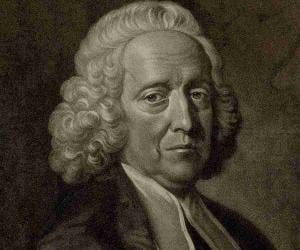
Apart from being a scientist, Stephen Hales was also a clergyman. He went down in history as the first person to quantitatively measure human blood pressure and also discovered transpiration in plants. He also invented surgical and other medical devices. He devoted himself to charitable causes following his wife’s death.
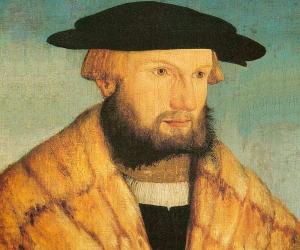
Sixteenth-century German physician and botanist Leonhart Fuchs is best known for his extensive research on the medicinal properties of plants and herbs. His work Historia Stirpium is an invaluable treatise on the history of plants. The plant Fuchsia found in the Caribbean was named in his honor.
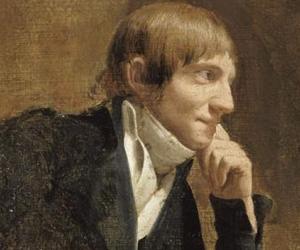
Belgian-born French painter and botanist Pierre-Joseph Redouté, also known as the Raphael of flowers, was a famous court painter and one of the greatest botanical illustrators of his time. Known for his iconic pieces such as Les Liliacées, he was a specialist of painting roses, too.
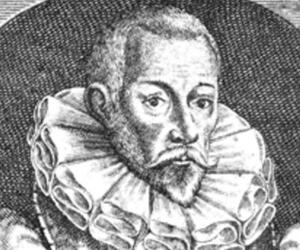
British herbalist John Gerard is best remembered for his iconic book The Herball, known as the first catalogue for plants. However, experts feel it was mostly plagiarized from a similar collection by Flemish botanist Rembert Dodoens. Apart from details about plants, he also included folklore in his works.
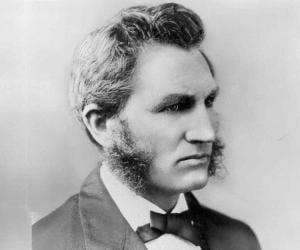
Lester Frank Ward was an American paleontologist, botanist, and sociologist. He is best remembered for his service as the American Sociological Association's first president. Lester Frank Ward played an important role in bringing Sociology courses into the higher education system in America.
Birbal Sahni was a pioneer of palaeobotanical research in India. The founder of the Birbal Sahni Institute of Palaeobotany, he also taught botany at BHU and Lucknow University. He was also interested in music and tennis, and loved collecting coins. He was a Fellow of The Royal Society, too.
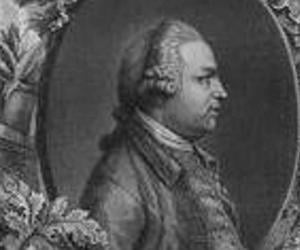
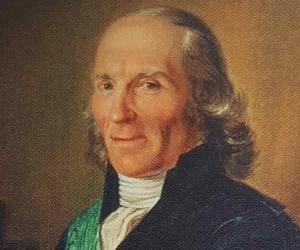
Carl Peter Thunberg was a Swedish naturalist best remembered as one of the apostles of Carl Linnaeus. Along with other students of Linnaeus, Thunberg spent seven years in Asia and southern Africa, gathering and describing animals and plants new to European science. Thanks to his extensive research on plants, Thunberg is referred to as the father of South African botany.
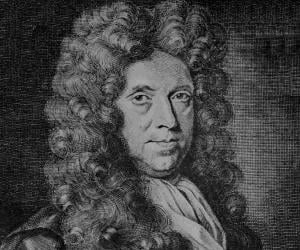
English botanist Nehemiah Grew is considered a pioneer of plant anatomy, along with Italian biologist and physician Marcello Malpighi. Initially a physician, he later penned iconic books on botany, such as The Anatomy of Plants. He also made pioneering studies in finger-print patterns. A genus of trees has been named after him.
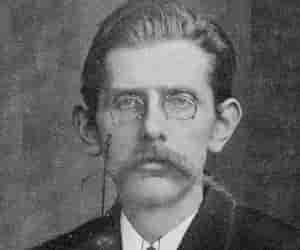
Danish author Jens Peter Jacobsen is remembered for pioneering the Naturalist mode of writing in Danish literature. While he initially translated some of Charles Darwin’s works, he later penned novels such as Marie Grubbe: A Lady of the Seventeenth Century. He is also known for his poems, which were released posthumously.
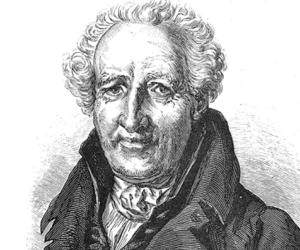
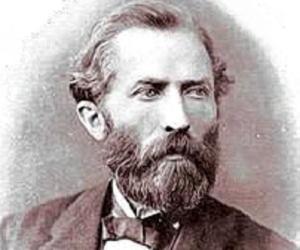
German surgeon and botanist Heinrich Anton de Bary is regarded as the pioneer of plant pathology and mycology. Apart from teaching botany, he chalked the life cycles of many fungi and also coined the term symbiosis to explain the mutually beneficial co-existence of many orgnanisms, such as fungi and algae.
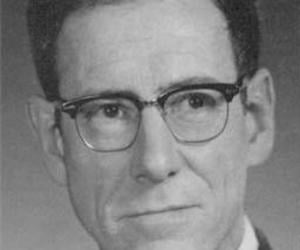
Robert Whittaker was an American plant ecologist best remembered as the first person to put forward the five kingdom taxonomic classification, namely Animalia, Plantae, Protista, Fungi, and Monera. He also served as a teacher at Washington State College. During his career, Robert Whittaker was honored with several prestigious awards such as the Eminent Ecologist Award in 1981.
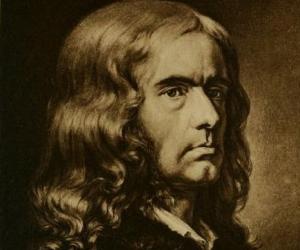
German poet and lyricist Adelbert von Chamisso, who lived in the 19th century, is chiefly remembered for his legendary fairy tale, Peter Schlemihl’s Remarkable Story. He also established the Berlin romanticist society Nordsternbund and was a noted botanist, too. He was also interested in philology and Australasian languages.
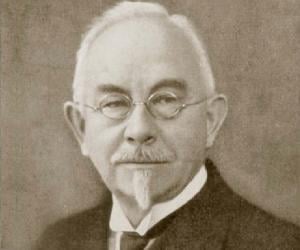
Danish geneticist and botanist Wilhelm Ludvig Johannsen is remembered for his research on plant heredity. Initially a professor, who had also taught plant physiology at the University of Copenhagen, he later focused on research. He is also credited with coining the terms phenotype, genotype, and genes.
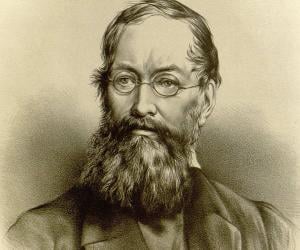
The son of a nurseryman, British botanist John Lindley revolutionized the plant classification system by introducing a method of considering all characters of plants. Known for his iconic work The Vegetable Kingdom, he also had a wide collection of orchids, which eventually found a place at the Kew Gardens.
Ferdinand von Mueller was a German-Australian geographer, physician, and botanist. He is credited with founding the National Herbarium of Victoria, the oldest scientific institution in Victoria. He is also credited with naming several Australian plants. Such is his popularity that many plants, animals, journals, and places in Australia are named after him.
